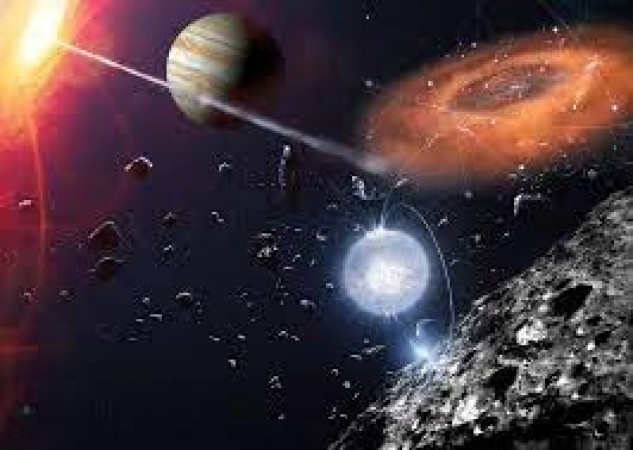
Astronomical events, ranging from meteor showers to solar eclipses, are phenomena that captivate human curiosity and wonder. These events have their roots in the vastness of the cosmos and are often the result of celestial bodies interacting with each other.
Celestial Mechanics: Gravitational Interactions and Orbital Dynamics
At the heart of astronomical events lie the principles of celestial mechanics. Gravitational interactions between celestial bodies, such as planets, moons, and stars, dictate their movements and orbits. These interactions can lead to a variety of phenomena, including eclipses, transits, and conjunctions.
The Dance of the Planets: Alignments and Conjunctions
One of the most mesmerizing astronomical events is the alignment of planets, known as conjunctions. During a conjunction, two or more planets appear close together in the sky from the perspective of an observer on Earth. These rare alignments capture the imagination of people around the world and have inspired myths, legends, and scientific inquiry throughout history.
Cosmic Debris: Meteor Showers and Impact Events
Meteor showers, another captivating astronomical event, occur when Earth passes through the debris left behind by comets or asteroids. As these cosmic particles collide with the Earth's atmosphere, they create streaks of light known as meteors. Occasionally, larger objects can survive the fiery journey through the atmosphere and impact the Earth's surface, resulting in meteorite strikes.
Eclipses: Celestial Spectacles of Light and Shadow
Eclipses, whether solar or lunar, are among the most awe-inspiring astronomical events visible from Earth. A solar eclipse occurs when the Moon passes between the Sun and Earth, casting a shadow on the Earth's surface. In contrast, a lunar eclipse occurs when the Earth passes between the Sun and the Moon, causing the Earth's shadow to fall on the lunar surface.
The Impact of Astronomical Events on Human Life
Cultural Significance: Mythology, Religion, and Folklore
Throughout history, astronomical events have held profound cultural significance for civilizations around the world. Ancient cultures often associated celestial phenomena with gods, spirits, and mythological narratives. The movements of celestial bodies were used to mark the passage of time, determine agricultural cycles, and guide religious rituals and ceremonies.
Scientific Inquiry: Observations, Discoveries, and Exploration
In addition to their cultural significance, astronomical events have played a crucial role in the advancement of scientific knowledge. Observations of celestial phenomena have led to groundbreaking discoveries about the nature of the universe, the laws of physics, and the origins of celestial bodies. Furthermore, astronomical events serve as opportunities for scientific exploration and research, with astronomers and space agencies around the world studying these phenomena to unlock the mysteries of the cosmos.
Technological Innovation: Advancements in Astronomy and Space Exploration
The study of astronomical events has driven technological innovation in fields such as astronomy, astrophysics, and space exploration. Telescopes, satellites, and space probes have enabled scientists to observe distant galaxies, study the properties of celestial objects, and explore other planets and moons within our solar system. Furthermore, advancements in technology have facilitated the prediction and observation of astronomical events with greater precision and accuracy.
Educational Outreach: Inspiring Wonder and Curiosity
Astronomical events serve as powerful educational tools that inspire wonder and curiosity about the universe. Events such as solar eclipses and meteor showers provide opportunities for people of all ages to engage with science and astronomy. Educational outreach initiatives, including public observing events, planetarium shows, and online resources, help to foster a deeper understanding of the cosmos and encourage lifelong learning.
Astronomical events, with their celestial beauty and scientific significance, enrich our understanding of the universe and our place within it. From the ancient myths and legends that surround them to the cutting-edge scientific research they inspire, these phenomena continue to capture the imagination of people around the world. By studying and experiencing astronomical events, we gain insights into the workings of the cosmos and our interconnectedness with the vastness of space.
Today people of this zodiac sign will be free from many problems, know how your horoscope is...